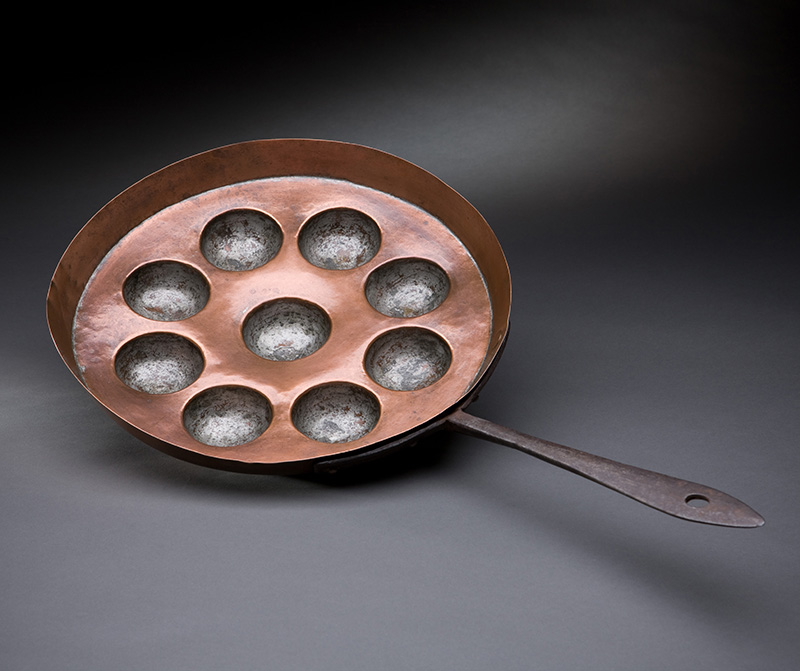
| Maker | Unknown |
| Date of Creation | Late 18th century |
| Location | Used at Mount Vernon, Virginia |
| Materials | Copper, tin |
| Institution | George Washington’s Mount Vernon |
| Credit Line | Acquired through the generosity of the Bill and Betty Busey Family, 2020 |
| Accession Number | W-2868 |
| Photo Credit | Photo by Mark Finkenstaedt, Courtesy of The Mount Vernon Ladies’ Association |
A copper pan with nine circular indentations represents a rare survival from the kitchen of George and Martha Washington. Its weathered surface carries traces of early America’s multi-ethnic cuisine, as well as the enslaved labor that fueled the country’s 18th-century foodways.
This distinctive design was used to make poffertjes, or small, puffed Dutch pancakes. Poffertjes, still a popular treat in the Netherlands, are distinguished from what we know today as pancakes by their use of yeast and buckwheat flour. George Washington may have relished similarities between these treats and hoecakes—his preferred breakfast—of yeasted cornmeal pancakes.
Washington may have encountered poffertjes during time spent in New York during the Revolutionary War, but when he acquired the pan is not known. It had entered the kitchen at his Virginia home, Mount Vernon, by 1785, when the author Noah Webster (1758–1843) recalled of his visit there:
“At dinner the last course of dishes was a species of pancakes which were handed round to each guest, accompanied with a bowl of sugar and another of molasses for seasoning them, that each guest might suit himself.” The pancakes made use of the buckwheat that Washington had introduced during the agricultural reforms of his Virginia farms in the 1780s, a restructuring that required new skills and demanding labor from his enslaved fieldhands. The sugar and molasses served with the poffertjes were purchased from plantations in the Caribbean.
The pancakes themselves would have been made by Hercules Posey, Doll, Lucy, or Nathan—highly skilled enslaved cooks who crafted meals for the Washington family and their prominent guests.
Poffertjes’s origins and preparation encapsulate the diverse peoples of the nation, as well as the impact of colonialism and enslavement, that shaped it. The pan used to cook them manifests many ethnic traditions that met in the early American kitchen and forged a new national cuisine.
